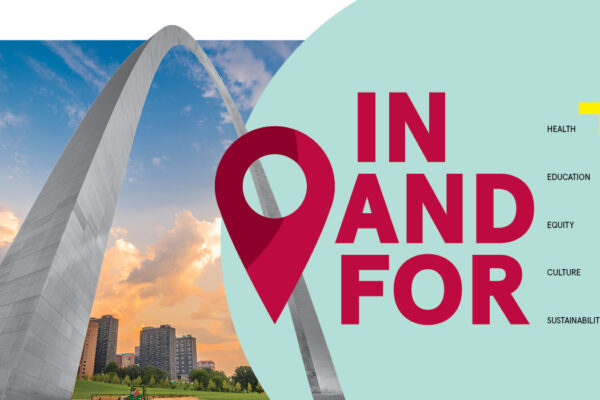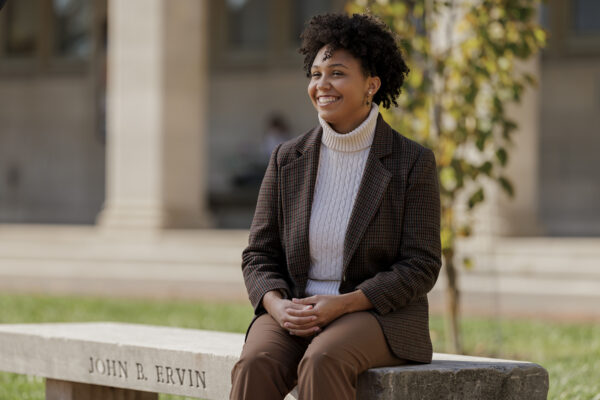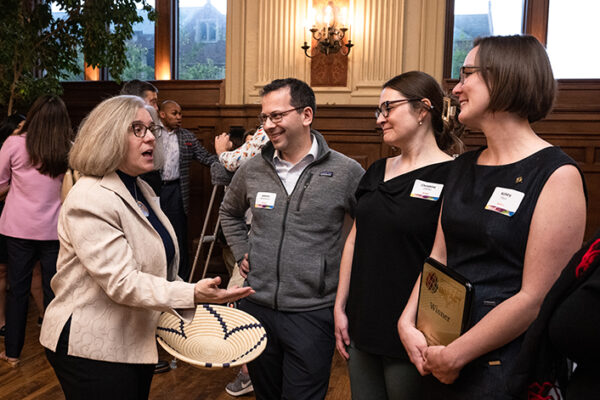Tony Sims was born a hustler. This week, he graduates from Washington University in St. Louis an entrepreneur.
“I’ve had so many aha moments at WashU,” said Sims, who is set to graduate with a bachelor’s degree in entrepreneurship from Olin Business School. “I came from a world where, if you wanted to start a bakery, you went to a bank and got a loan. At WashU, I got to see how the startup space works, how you can take an idea, bring it to funders and scale it in a big way.”
Sims is among the 2,042 WashU students who are set to earn their degrees this month. The university will celebrate their accomplishments at the annual December recognition ceremony at 10 a.m. Saturday, Dec. 9, at the Athletic Complex. Penny Pennington, managing partner of Edward Jones and a university trustee, will serve as speaker.
During his time at WashU, Sims has launched two startups, including Apollo Music, a music-technology platform that helps musicians create, collaborate and store music using artificial intelligence-enhanced creativity tools. Sims conceived of Apollo after he layered Drake vocals onto a song that he wrote and recorded. The song went viral, racking up 100,000 streams on Spotify. Sims has since met with investors and musicians across the country intrigued by Apollo’s possibilities.
“Investors have told me that they see in me the tenacity to get something going,” Sims said. “To where exactly, I’m not sure. One of the things I’ve learned about the startup space is that no one knows until it works.”
Sims’ college career has been just as unpredictable. Even enrolling at WashU was a fluke. As a high school student in Memphis, Tenn., Sims started a music production company, recording local artists, shooting their videos and placing their work on streaming platforms. That experience prompted him to apply to colleges with ties to the music industry. But after tagging along on a tour of the South 40 with his cousins, he decided to apply here, too.
“I had no idea that WashU was a Top 20 school, that it had so many resources and opportunities,” Sims recalled. “I just knew that they gave me a good financial aid package.”
After a promising first year, Sims’ education was put on hold after he mysteriously passed out during summer break. He took a yearlong medical leave as doctors tried to figure out why Sims was so sick. Finally, he was diagnosed with postural orthostatic tachycardia syndrome, a treatable disorder that causes fainting and dizziness. Sims was cleared to return to school in 2020 — the year of social distancing and Zoom classes. That’s when he got to work on his next endeavor, Lyfe Health, a platform that stored health information so users need not fill out the same forms over and over like Sims did during his illness. Sims and his partner took the fall 2021 semester off to raise capital for the business, but there were no takers. That’s when he learned another key lesson: Good ideas need good connections.
“Without being in the industry for years, we weren’t the right people to solve that problem,” Sims said. “But I don’t regret taking the risk. Putting myself in the real-world space taught me and my partner a lot.”
Sims said his experience as a self-taught musician and coder better positions him to make Apollo a success. AI music, he said, is not what you think it is.
“It’s not about typing in, ‘Make me a Drake song,’” Sims explained. “I see Apollo as sort of a Google Drive that helps musicians create their own work using new technology. They can upload a beat, use the AI writing tool and share their work. It is about making the creative process easier, not mimicking the work of others.”
Sims plans to return to Memphis after graduation but expects that he will continue to lean on his WashU mentors, Doug Villhard, a professor of practice in entrepreneurship and the academic director for entrepreneurship at Olin Business School, and Maxine Clark, founder of Build-A-Bear Workshop and an emeritus trustee.
“Having people like them in my network means so much,” Sims said. “College didn’t go exactly like I predicted, but I wouldn’t change my path.”



